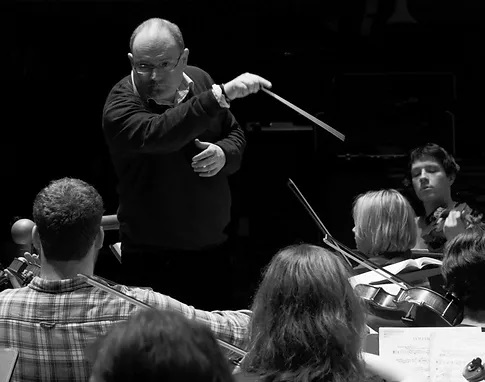
University of York Symphony Orchestra (USO) Sir Jack Lyons Concert Hall, University of York, November 26
TICKETS were like gold dust for the USO’s latest foray under its permanent conductor John Stringer.
This is a popular group and its standards are high. The programme encompassed London as painted by Elgar and Paris as seen by Delius and Gershwin, with a couple of brief side-trips from Grainger in between.
Elgar’s concert overture Cockaigne (In London Town) is a series of vignettes of London life. He wanted to lift his spirits in 1901 after the disastrous initial response to The Dream Of Gerontius the previous year. As an establishment outsider, he also needed a way back into the musical mainstream. Cockaigne did the trick.
The violins were immediately bold in the vivacious opening melody but the change of mood to the more serious side of the Londoner was fluently done, even if things only quietened down fully when we glimpsed the lovers in the park. The military march rang out with majestic bravado underpinned by an especially zealous timpanist.
Although premiered the same year as Cockaigne, Delius’s Paris: The Song Of A Great City is quite a different animal, much more personal, indeed almost autobiographical. It started a little uncertainly here, before finding its way into a more shapely impressionism; the sinuous phrasing of the bass clarinet led the way.
The night air was warmed by the saltarello rhythm suggesting distant revels. But after the frenzy of bacchanalia leading to the march we reached an immense climax, which suited the orchestra’s mood perfectly. Thereafter the encompassing lull before the last great chord was serenely controlled.
Percy Grainger struck up a lasting friendship with Delius, so there was a personal link in his Dreamery, which – contrary to the Grainger image of relentless jollity – is a quiet daydream for strings alone. It dates from immediately after the First World War and is clearly nostalgic for calmer times. The orchestra’s fine body of violins were right at home here and all the strings enjoyed the composer’s delicate tapestry.
Equally brief but no less effective was Grainger’s arrangement of Ravel’s La Vallée des Cloches, from his piano suite ‘Miroirs’. Ravel had originally intended to orchestrate it himself. The opening section for tuned percussion was hypnotic. When the strings finally joined them, the violas made succulent use of their time in the spotlight.
We stayed in France for An American In Paris, Gershwin’s jocular parody of the archetypal Yank abroad, bold, brazen, and more than a little loud. He got off to a jaunty start, courtesy of the woodwinds, and the syncopation that followed was nicely edgy.
The sleaze quotient lifted with blues trumpet and tuba. Tempo changes were smoothly negotiated, as this American began to look and listen rather than impose himself. The ending was triumphant. It had all been a tasty travelogue.
Review by Martin Dreyer
